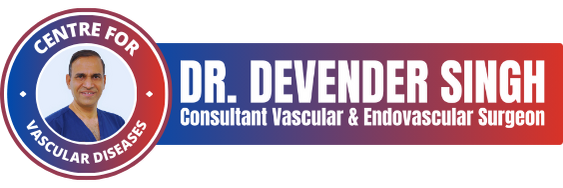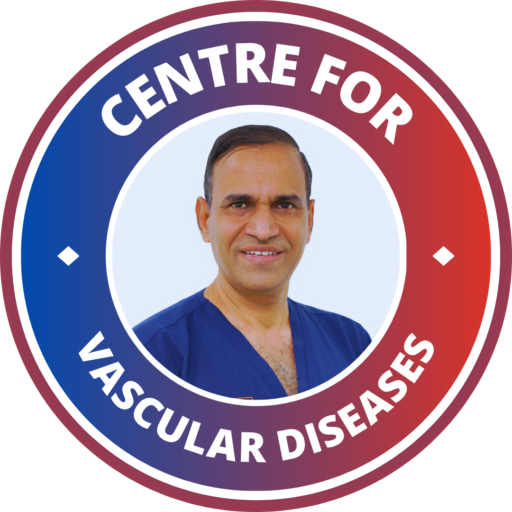Carotid Stenting

Carotid Artery Stenting: Minimally Invasive Treatment for Carotid Artery Disease
Carotid artery stenting is an advanced minimally invasive procedure used to treat carotid artery disease, a condition characterized by the narrowing or blockage of the carotid arteries, which supply oxygen-rich blood to the brain. This innovative technique involves the placement of a stent—a small mesh tube—within the narrowed portion of the carotid artery to improve blood flow and reduce the risk of stroke. Dr. Devender Singh, a distinguished vascular surgeon in Hyderabad, specializes in performing carotid artery stenting with precision and expertise, offering patients effective treatment options to mitigate the risk of stroke.
Understanding Carotid Artery Stenting:
Carotid artery stenting is typically recommended for patients with significant carotid artery stenosis (narrowing) who are at high risk for stroke or are not candidates for carotid endarterectomy—a traditional surgical procedure for carotid artery disease. During carotid artery stenting, a catheter is inserted into the femoral artery in the groin and guided to the site of the carotid artery blockage under X-ray guidance. Once in position, a stent is deployed to widen the narrowed artery and improve blood flow to the brain.
Procedure Overview:
Preoperative Evaluation:
- Before undergoing carotid artery stenting, patients undergo a comprehensive evaluation, including medical history review, physical examination, and diagnostic imaging such as carotid ultrasound or angiography. This assessment helps determine the severity of carotid artery disease and guides treatment decisions.
Anesthesia and Access:
- Carotid artery stenting is typically performed under local anesthesia, with sedation to ensure patient comfort during the procedure.
- A small incision is made in the groin area, and a catheter is inserted into the femoral artery and guided to the site of the carotid artery blockage.
Stent Placement:
- Once the catheter is positioned within the narrowed portion of the carotid artery, a stent is advanced through the catheter and deployed to expand the artery and improve blood flow.
- The stent remains permanently in place, acting as a scaffold to keep the artery open and prevent future narrowing or blockage.
Postoperative Care:
- After the procedure, patients are monitored closely for any signs of complications, such as bleeding or blood vessel injury.
- Most patients can expect to return home the same day or after a short observation period, with instructions to avoid strenuous activity and follow-up with their vascular surgeon for ongoing care.
Benefits of Carotid Artery Stenting:
- Minimally Invasive: Carotid artery stenting is a minimally invasive procedure that does not require open surgery or general anesthesia, resulting in faster recovery times and reduced risk of complications.
- Effective Stroke Prevention: By widening the narrowed carotid artery and improving blood flow to the brain, carotid artery stenting helps reduce the risk of stroke and its associated complications.
- Personalized Treatment: Carotid artery stenting can be tailored to each patient’s unique anatomy and medical history, offering a customized treatment approach for individuals with carotid artery disease.
- Improved Quality of Life: Successful carotid artery stenting can lead to improved symptoms, enhanced mobility, and a better quality of life for patients living with carotid artery disease.
Meet Dr. Devender Singh: Best Vascular Surgeon in Hyderabad
Dr. Devender Singh is a highly respected vascular surgeon known for his expertise in carotid artery stenting and other advanced vascular interventions. With a focus on patient-centered care and excellence in vascular surgery, Dr. Singh provides comprehensive evaluations, personalized treatment plans, and attentive follow-up to ensure the best possible outcomes for patients with carotid artery disease.
If you or a loved one have been diagnosed with carotid artery disease or are concerned about your vascular health, schedule a consultation with Dr. Devender Singh today. With his specialized knowledge and compassionate approach, Dr. Singh can help you understand your condition, explore treatment options, and take proactive steps to safeguard your vascular health and reduce the risk of stroke.

